Vinegar Weed Killer Recipe-just the facts
I’ve been using this homemade vinegar weed-killer recipe for over three years now and have figured out what works, what doesn’t, and what your expectations should be. Read on for the recipe and the facts if you are interested in a natural weed killer recipe.
Like everyone, I am concerned about the proliferation of chemicals in our food and our environment. It only makes sense that the more harmful chemicals we use, the more damage we are doing to our bodies and our environment.
But there’s no denying that spraying tenacious weeds is much easier and more efficient than digging them up.
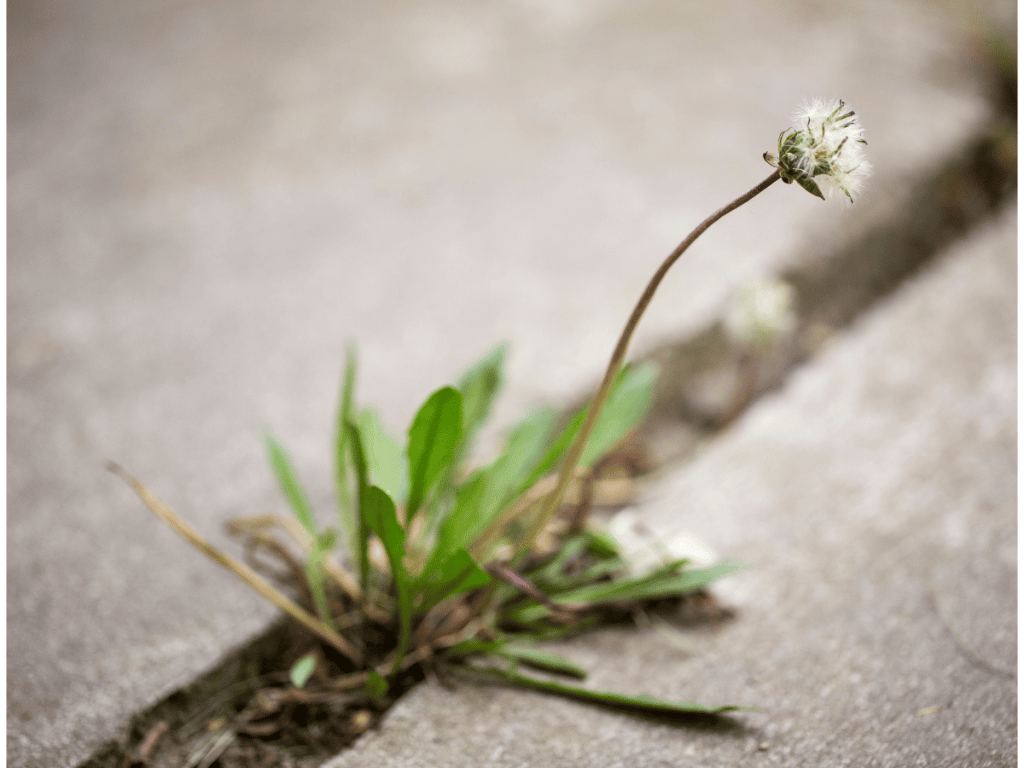
Table of Contents
So, what is an avid gardener to do? I don’t want to spend my precious gardening hours pulling weeds!
This dilemma is what prompted me to investigate the recipes for vinegar weed killers I have seen advertised over the past couple of years. My first try with the original homemade week killer recipe was unimpressive. Sure, the weeds turned a little brown, but there wasn’t the dramatic ‘weed demise’ that I was looking for and was used to with the commercial weed killers.
But, I wanted to cut the ties with the broad-spectrum glyphosate-based herbicides, so I did a little more investigation and experimentation into a natural weed killer recipewith vinegar and dawn. And I also adjusted my expectations!
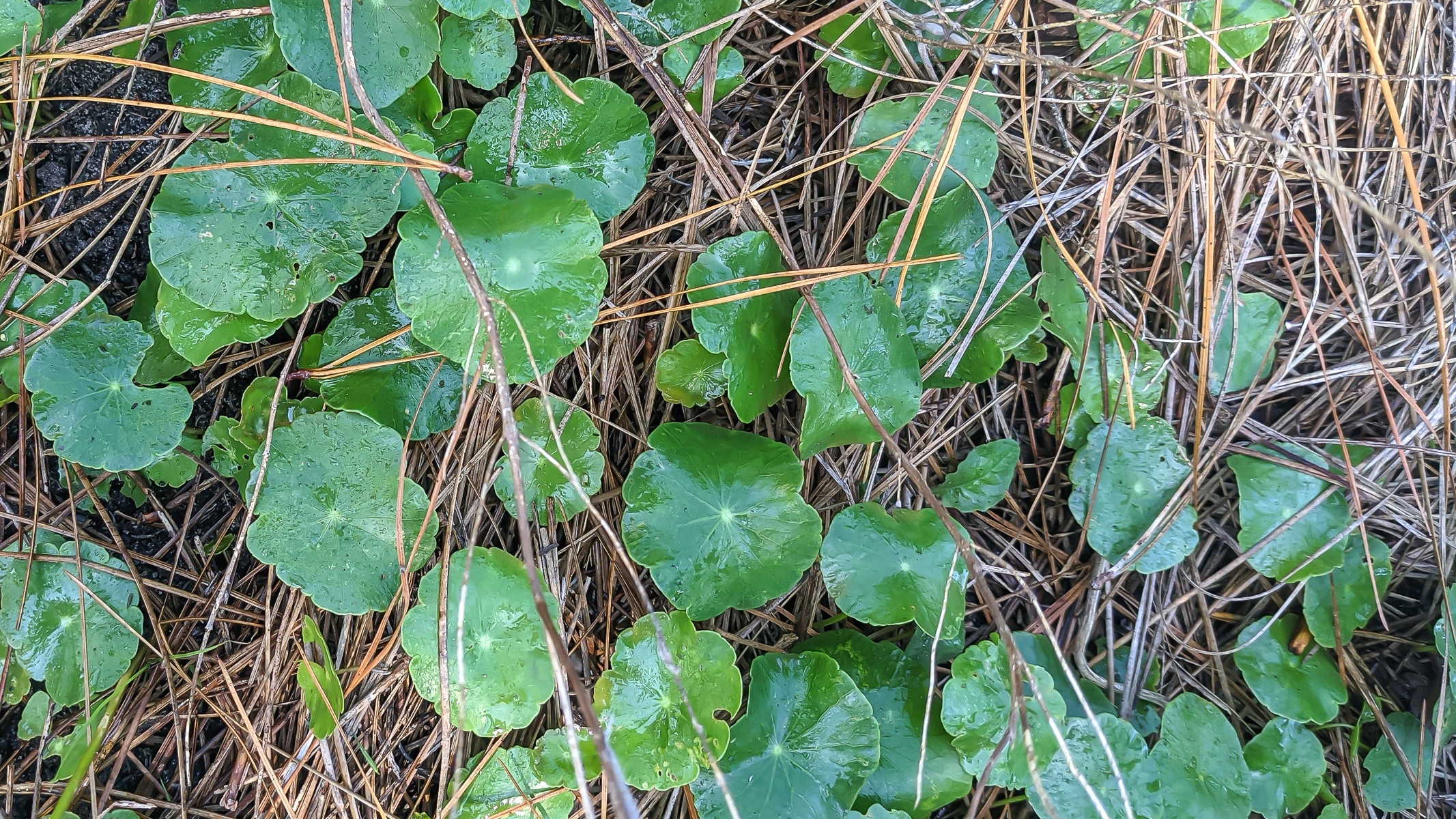
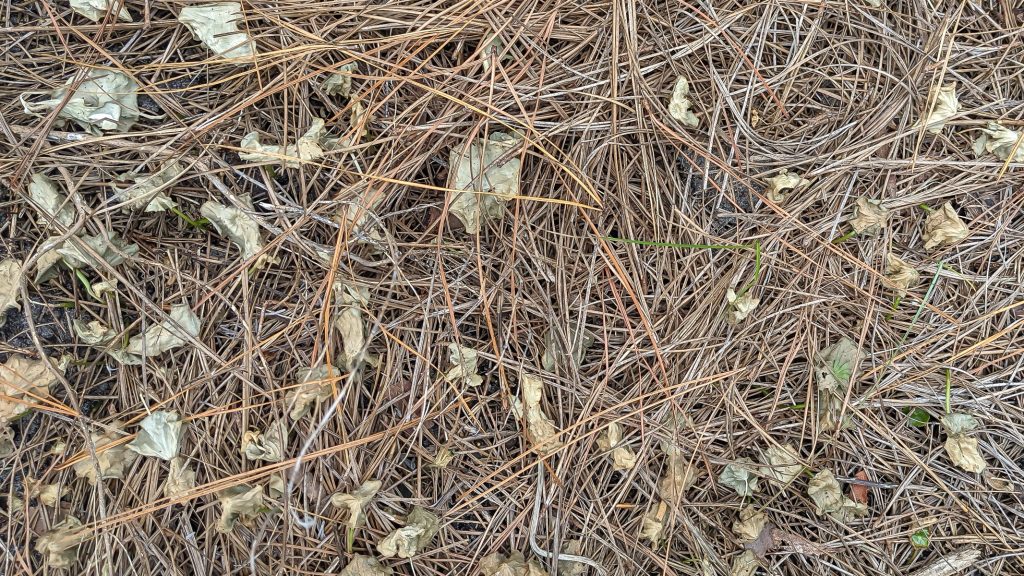
Featured Comment
“This stuff is absolutely bananas! I used 45% vinegar plus the recommended salt and dish soap. Within 2 hrs, the area I applied the solution to was brown! It’s absolute magic!! We have well water, I feel so much better about using this vs harsh chemicals!! Thank you so much!!.”
Tracey
What I’ve Learned About Homemade Weed Killers
- No homemade weed-killer recipe will ever be as strong or effective as commercial chemical products, so you must adjust your expectations accordingly.
- The difference I noticed between the commercial and the DIY weed killer is that the commercial product did a more effective job killing the roots of the weed, and thereby the weed, at the first application. To fully kill the weed with a homemade vinegar weed killer, you may need a couple of applications.
For instance, I sprayed this mint with my homemade vinegar weed killer, and a week later, while most of what you could see was dead, there was a wee bit of new growth right at the base. So I sprayed more vinegar on those little sprouts and a week after that, I haven’t seen any green growth. But let’s be honest, killing mint is no easy task!
- With that said, sometimes they kill weeds effectively the first time! Other times they may need an additional spray or two.
- The homemade vinegar weed killer will definitely hurt the feelings of whatever you spray it on, accidentally or not! I didn’t realize that my sprayer was still squirting as I walked through our lawn until I noticed this little path two days later. 🙄 (I inadvertently drew pretty good parentheses, if I have to say so myself!)
- A wind-free, dry, and sunny day is the perfect day for killing weeds with this natural weed killer recipe.
- The fumes of vinegar weed killer can damage the leaves of plants around it, even if the actual spray doesn’t contact the leaves. We found this especially true, as would be expected, with tender leaves like tomato leaves, squash leaves, impatient leaves, and blades of grass.
- This spray works on the plant leaves and cell tissues and doesn’t affect weed seeds.
- As with all weed killers, you only want to spray directly onto the leaves of the weed, vine, or plant. Adding too much salt to your soil isn’t a good thing. I am very mindful of not widely broadcasting my vinegar weed spray but instead targeting the specific weed leaves. Using this approach, I have not had any problem growing welcomed plants where I am also using this spray to kill the weeds.
Even with all the caveats I’ve mentioned, I can’t imagine ever going back to the commercial, chemical-laden weed killers. There is just too much information on the cancer risk and environmental damage that commercial weed killers pose. I am more than happy to spray my tenacious weeds two or three times to control them. That’s a small price to pay for peace of mind.
Precautions With Natural Weed Killers
Vinegar solutions, particularly those with high acetic acid concentrations, can cause skin irritation, eye damage, and respiratory discomfort if inhaled. So, it’s helpful to wear protective clothing, including gloves, goggles, and a mask.
Be cautious of runoff. Vinegar and any additives, like salt, can contaminate nearby water sources, affecting aquatic life and water quality. Use minimal amounts and avoid application near water bodies.
Vinegar is a broad-spectrum herbicide. Its indiscriminate use can harm or kill plants that serve as food and habitat for beneficial insects.
What Kind of Vinegar Do You Need for Your Homemade Weed Killer
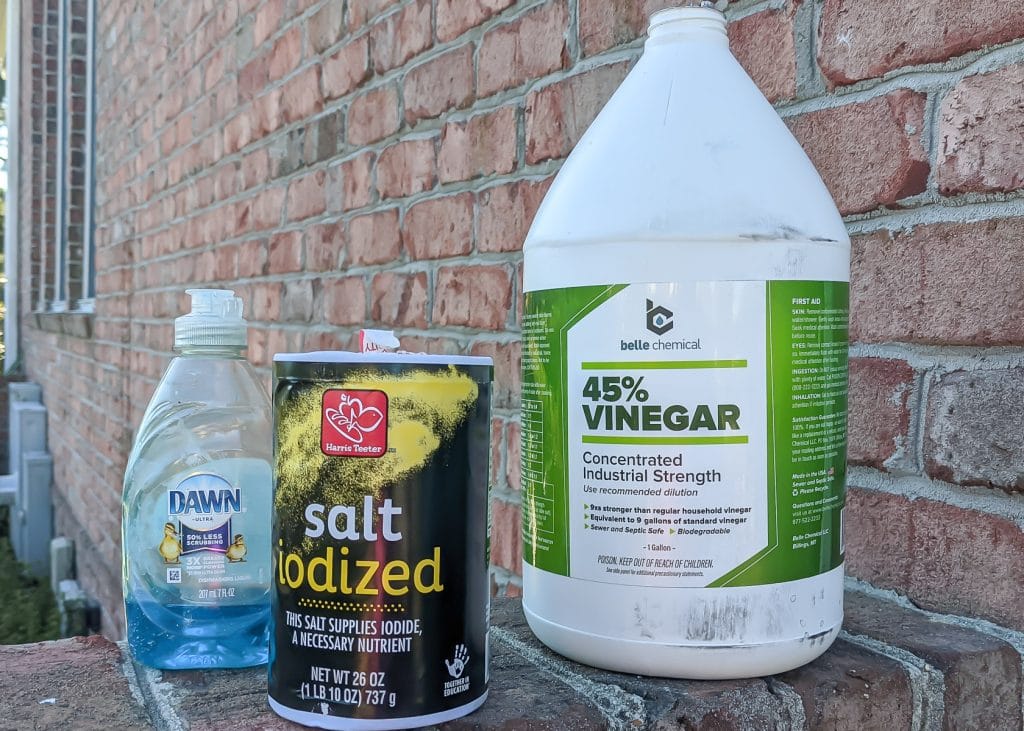
Plain old household vinegar is not strong enough. Household vinegar is typically 5% acetic acid, which might kill a very young or tender weed, but not a serious or tenacious weed or vine. We need to bring the big guns in terms of acetic acid strength to this fight; which means a minimum of 30% or up to 45% acetic acid. I’m a go big or go home girl, so I have been using the 45% vinegar as it is the same price as the 30%.
The 30% vinegar and 45% vinegar will burn your skin! I haven’t noticed that it leaves a mark, you just feel it. I imagine it is awful in your eyes and I’m also sure you don’t want to take a deep breath of it. It is a strong acid! The 30% vinegar and 45% vinegar run about $20/gallon on Amazon; which means that making homemade weed killers with vinegar will not necessarily save you money. It’s fairly comparable in price to the pre-mixed, commercial weed killers.
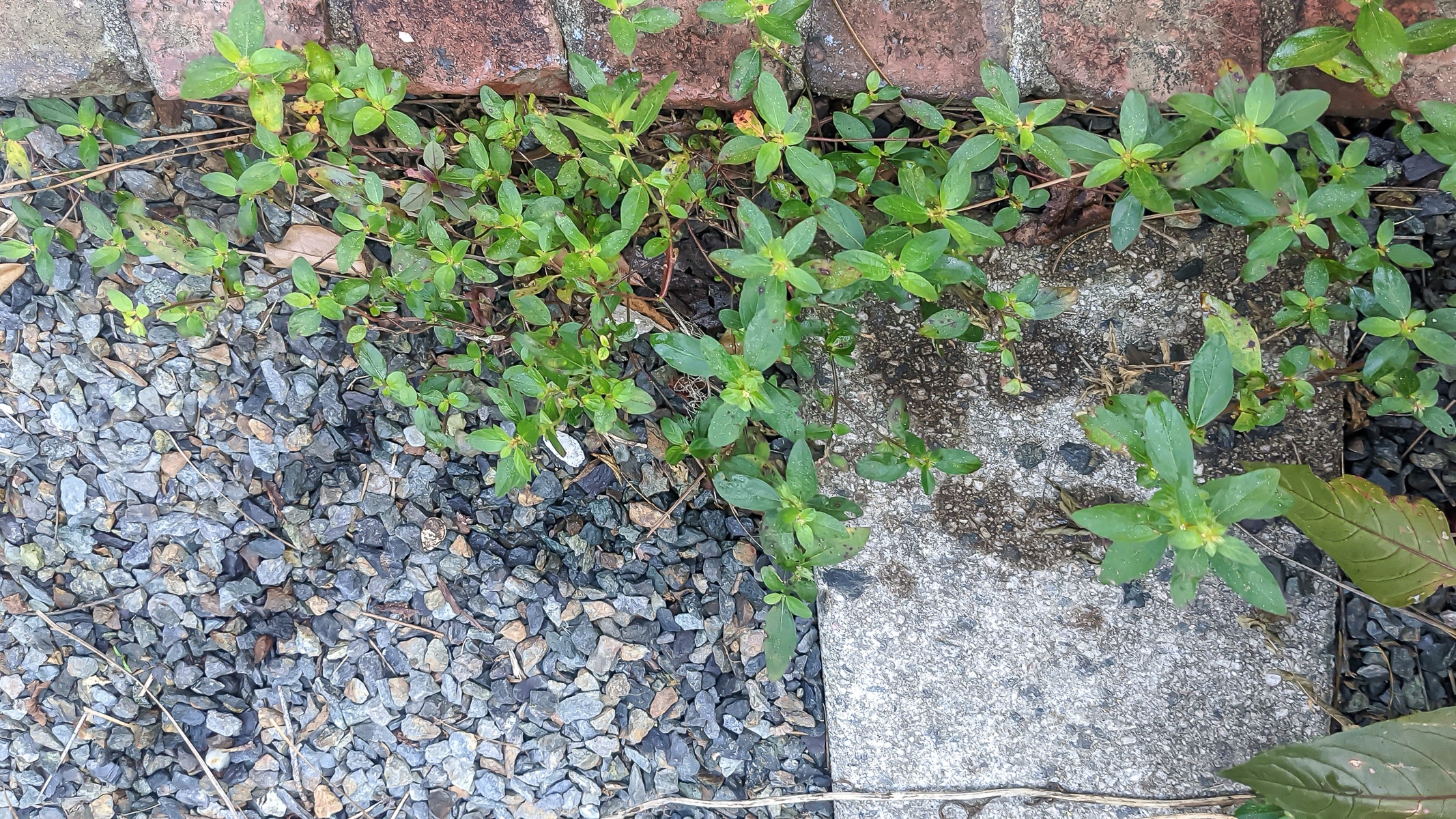
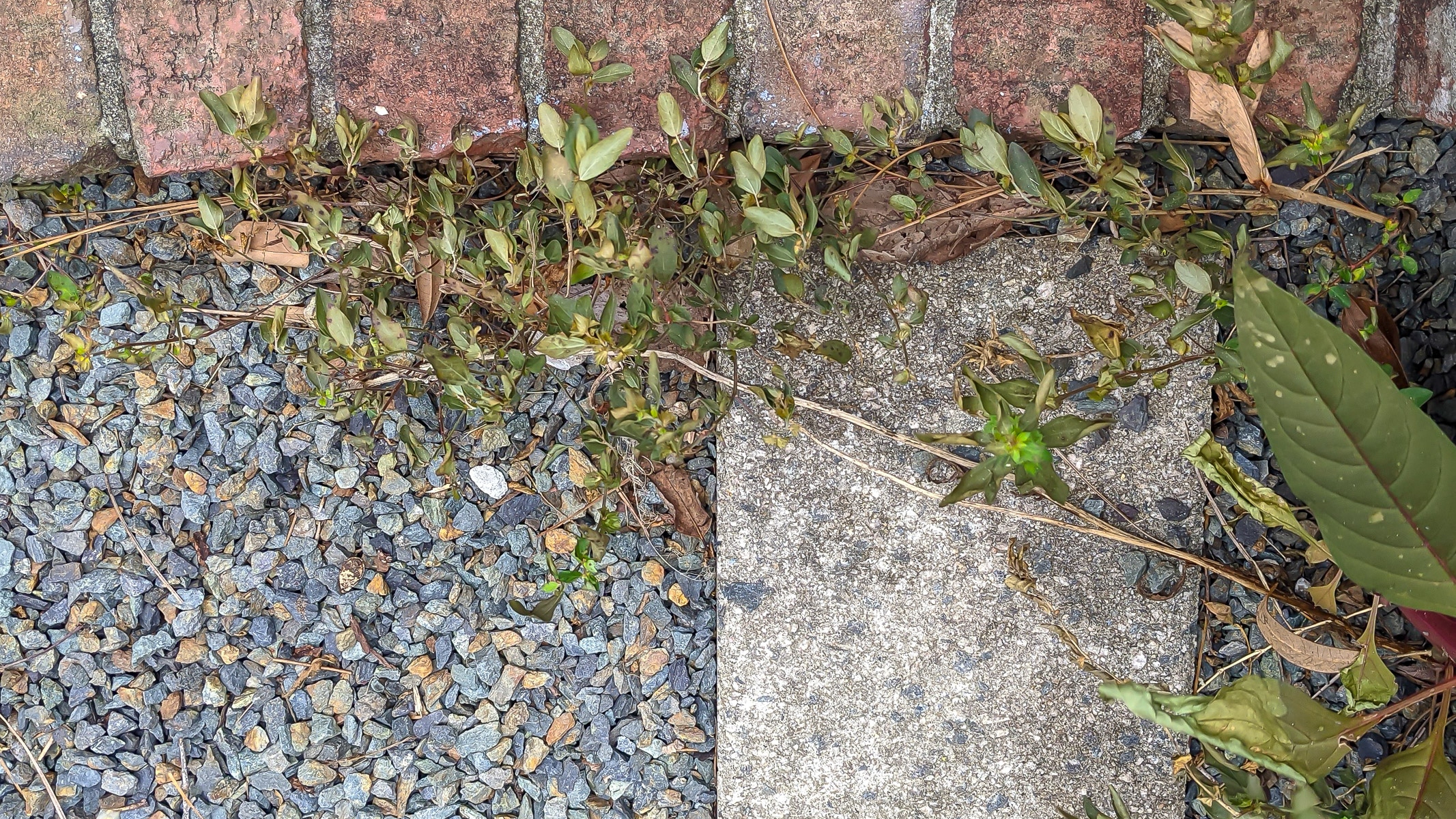
The Ingredients in this Homemade Weed Killer Recipe & Their Purpose
- 30 – 45% Vinegar As we mentioned, it is the acetic acid in vinegar that is the ingredient we need. Acetic acid dissolves plant cell membranes, which results in the drying out of the plant tissues and the ultimate death of the plant.
- Salt draws water from the plant cells, causing them to dry out and die.
- Liquid Dish Soap acts as a surfactant, which breaks the surface tension between the vinegar/salt solution and the leaf surface so the vinegar/salt can access the plant tissues.
The Drawbacks of a Vinegar & Salt Weedkiller as Weed Control
As grandma always said, ‘There’s no free lunch.’ Any homemade weed killer recipe that includes vinegar and salt does have its drawbacks. Too much salt in your soil will harm beneficial bacteria and earthworms, as well as have the effect of reducing roots’ ability to pull moisture from the soil.
Regular use of vinegar can lower the pH of the soil, making it more acidic. However, because vinegar breaks down quickly in the environment, occasional use is unlikely to have a significant long-term impact on soil pH.
But, if you are aware of the risks and, once again, target this natural weed killer recipe on the leaves of the weeds, you can avoid the damaging effects of the salt and vinegar.
Frequently Asked Questions and Answers About Vinegar Weed Killer
Vinegar contains acetic acid, which works by drawing moisture out of plant tissues. When sprayed on the leaves of weeds, it causes them to dry out and die. The effectiveness depends on the concentration of acetic acid; household vinegar is typically around 5% acetic acid, but for weed killing, a higher concentration (30% to 40%) is usually recommended in most natural weed killer recipes.
In its diluted form, vinegar is safer than many chemical herbicides for use around pets and children. However, higher concentrations of acetic acid can be harmful if ingested or if they come into contact with skin and eyes. It’s important to use the same precautions as with any garden treatment and keep pets and children away until the area dries completely.
Regular use of vinegar can lower the pH of the soil, making it more acidic. However, because vinegar breaks down quickly in the environment, occasional use is unlikely to have a significant long-term impact on soil pH. Still, it’s best used sparingly and targeted directly on the weeds to minimize any potential soil impact.
Vinegar is most effective on young, annual weeds. Perennial weeds, which have deeper root systems, may require multiple applications to fully kill them. Vinegar is a non-selective herbicide, meaning it will damage or kill any plant it comes into contact with, so it’s important to apply it carefully.
For best results, apply vinegar directly to the leaves of weeds on a sunny, calm day. The sun helps to accelerate the drying process, increasing the herbicide’s effectiveness. Use a spray bottle for precision and to avoid overspray on desirable plants.
Apply vinegar weed killer during the warmest part of the day when the sun is out. The heat helps the vinegar to work more effectively by causing the weeds to absorb it more readily and speeding up the drying process.
Vinegar is less effective on large, established weeds with deep root systems or those with waxy or hairy leaf surfaces that resist absorption. Repeated applications may be necessary, and even then, some weeds may only be suppressed, not completely eradicated.
Mint is notoriously hard to kill; I found that repeated spraying of this natural weed killer on the leaves ultimately will kill the plant.
To be honest, I haven’t found a good way to kill weeds around my veggies without damaging the leaves of the plants. I haven’t killed a plant, but I did kill several leaves. I’ve tried shielding the vegetable plants and even using a brush to paint the vinegar onto the weeds but still damaged the leaves. I’ve concluded that it is the fumes that damage the leaves and not the actual spray.
I don’t have a concrete answer to that question. I use it as sparingly as possible and target the leaves of weeds and not the soil around the weeds.
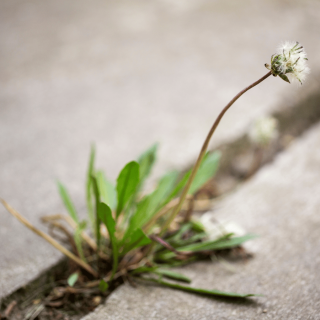
Homemade Weed Killer
Ingredients
- 1 gallon of 30% vinegar or 45% vinegar
- 1 cup of table salt
- 1 good squirt about 1 tablespoon of Dishwashing Liquid
Instructions
- Pour the salt into the vinegar container so that it dissolves prior to pouring it into your garden sprayer. Shake it to dissolve the salt or let it sit for more than 20 minutes. You want the salt fully dissolved so that it doesn't clog the uptake hose of your sprayer.
- Add the salt/vinegar mixture to the sprayer tank
- Add 1 tablespoon or 1 good squirt of dishwashing liquid.
- Spray the solution on the leaves of the weeds you want to kill. Be very careful to minimize contact with the surrounding soil. You may need multiple applications to fully kill some weeds without harming the soil.
Bookmark this page or pin the following image to refer back to this Homemade Weed Killer Recipe in the future.
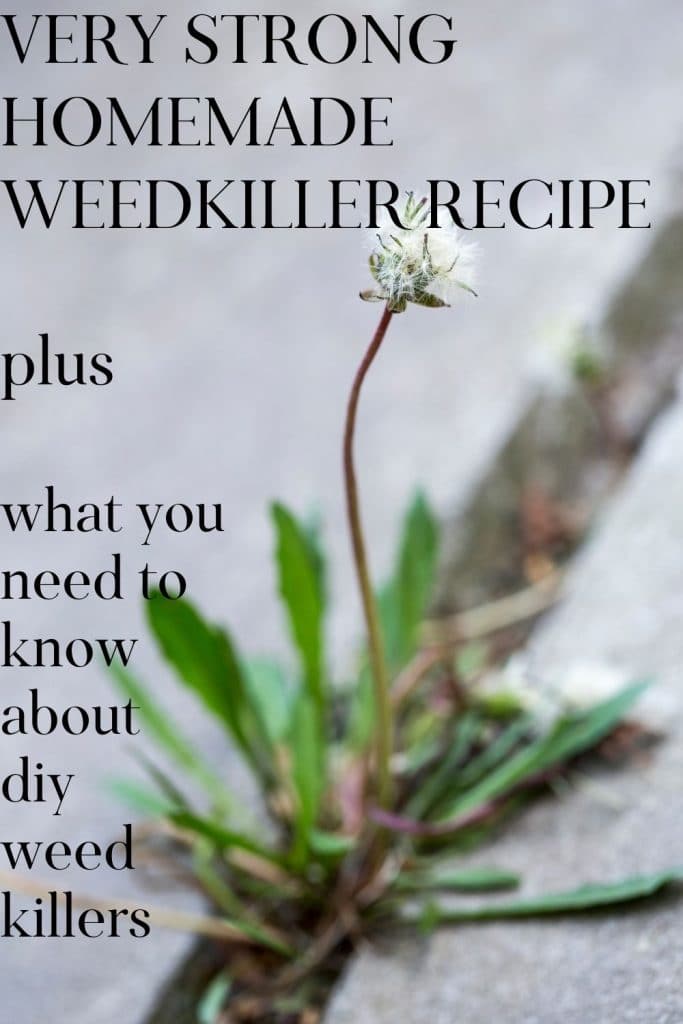
Thanks so much for spending a few minutes of your busy day with me!
If you want to ensure you don’t miss future content, pop your email in the pale green box on the right or click here. I usually send out 2-3 emails a week so that I won’t inundate your inbox. I’m sensitive to an overflowing email inbox!
We will only use your email address to send you emails, no more than 1-2 per week. In addition, you will have access to my growing library of knit & crochet patterns, as well as other printables. Check back often as this library will continue to grow. You can unsubscribe at any time by emailing me or clicking on the “unsubscribe” link at the bottom of all emails.
And, you can access many of the products I refer to on my Nourish and Nestle Amazon Page. You can access it here.
So, if you’d like to get in on the ‘subscriber benefit’ action, simply subscribe to Nourish and Nestle here or use the form on the right sidebar. It’s towards the top a bit.
I have sent all my subscribers the link to the Subscriber Benefits Library. If you missed it or misplaced it, drop me a line.
Until next time…





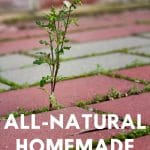

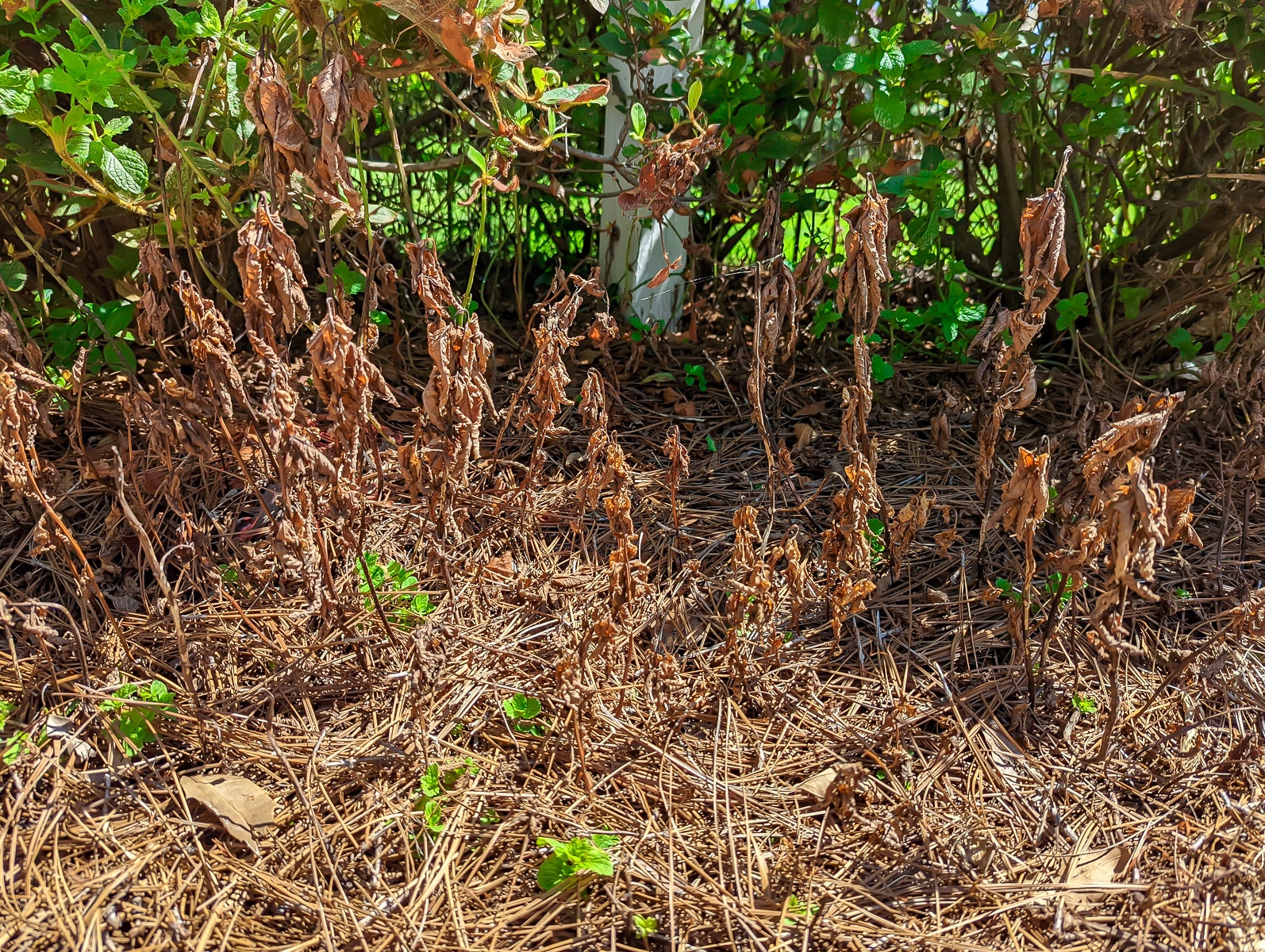 For instance, I sprayed this mint with my homemade vinegar weed killer, and a week later, while most of what you could see was dead, there was a wee bit of new growth right at the base. So I sprayed more vinegar on those little sprouts and a week after that, I haven’t seen any green growth. But let’s be honest, killing mint is no easy task!
For instance, I sprayed this mint with my homemade vinegar weed killer, and a week later, while most of what you could see was dead, there was a wee bit of new growth right at the base. So I sprayed more vinegar on those little sprouts and a week after that, I haven’t seen any green growth. But let’s be honest, killing mint is no easy task!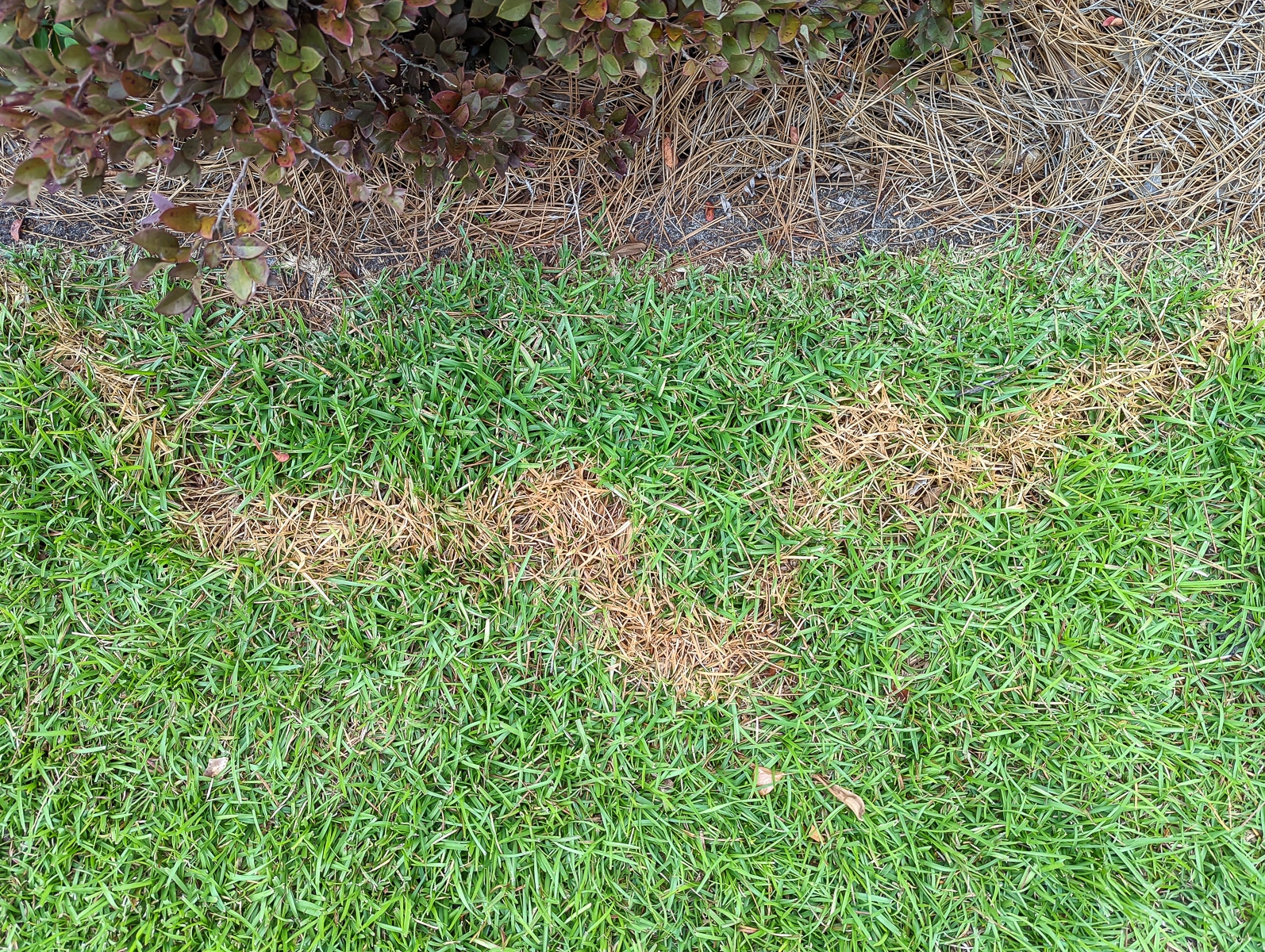
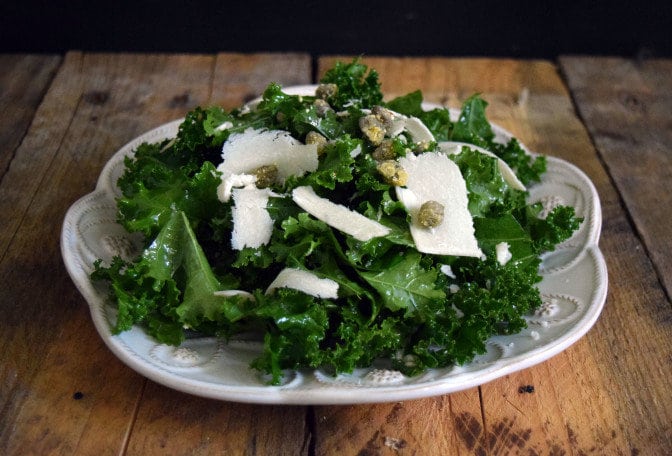
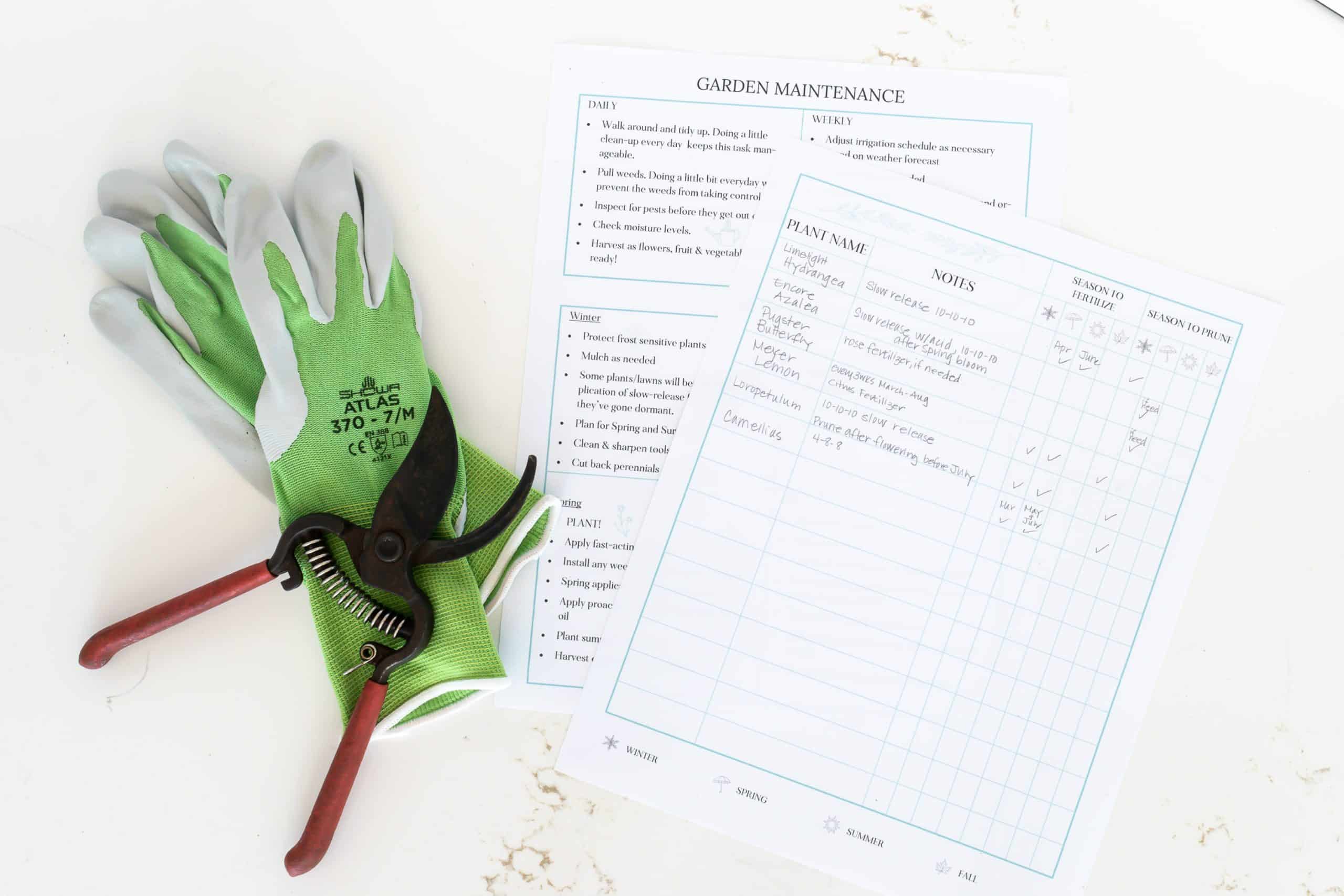

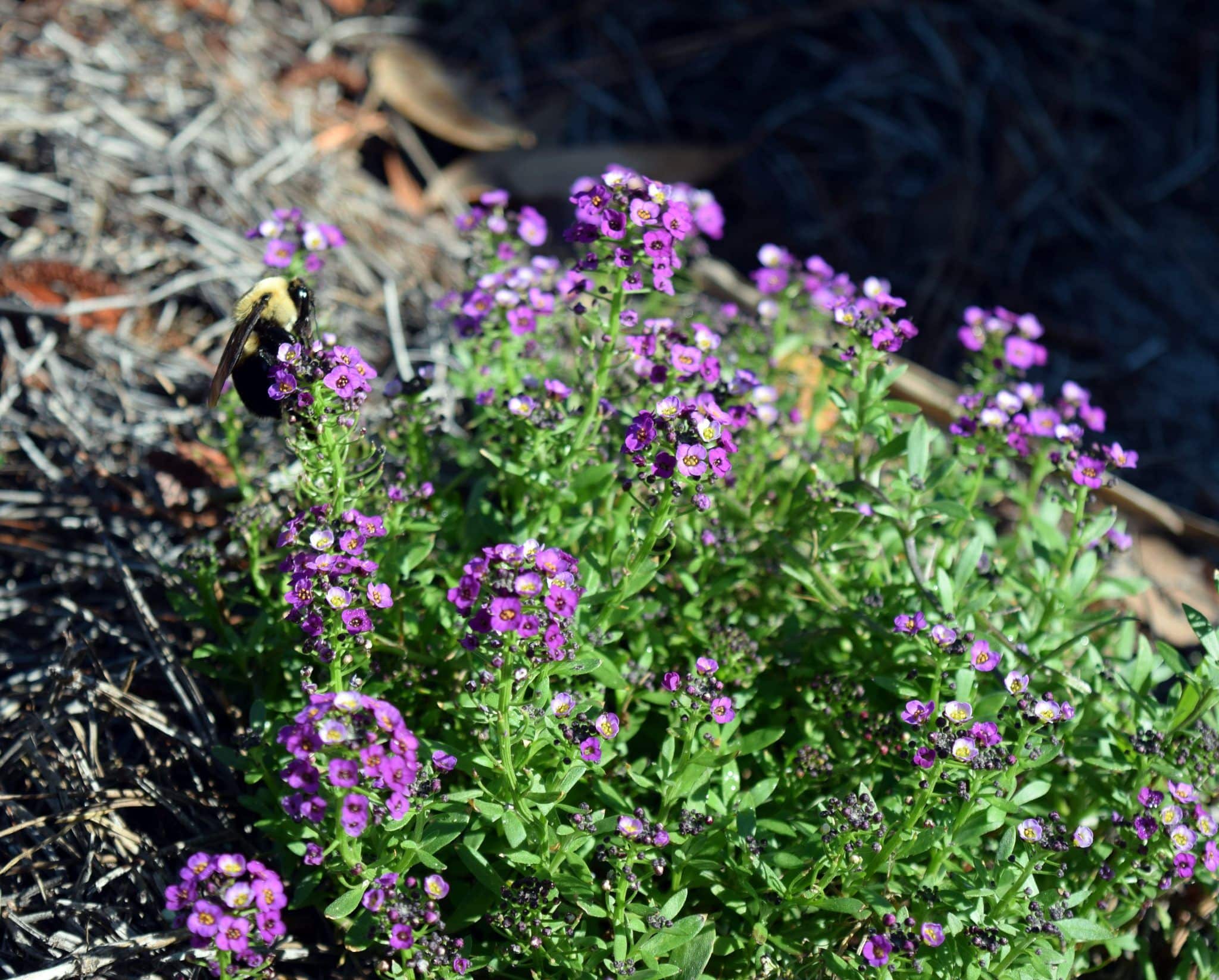
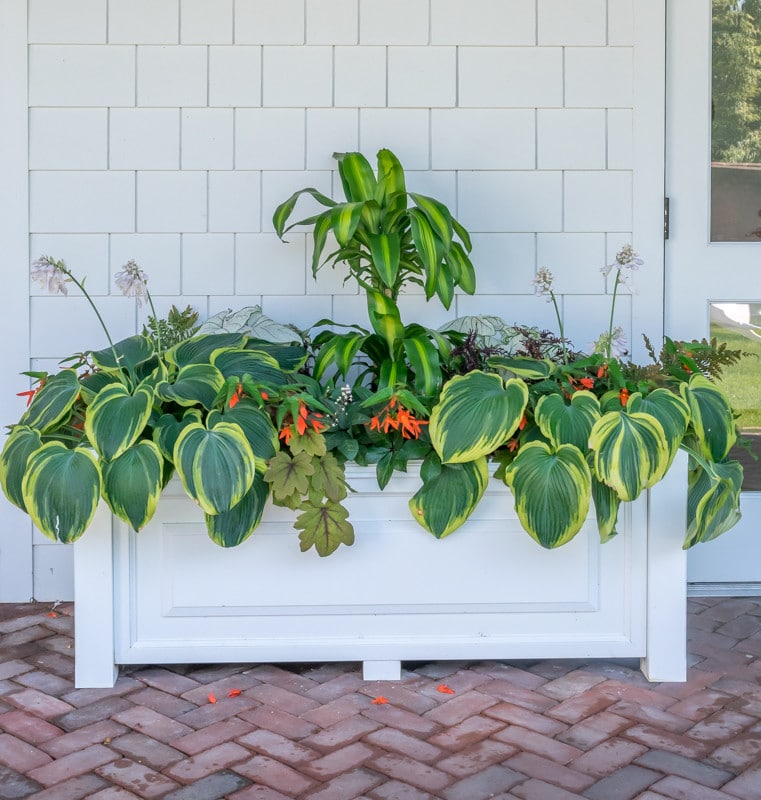

I am very interested in trying this. I have been making my own cleaning products and I will be making your recipe for weed killer today! Thanks for comparing both and sharing.
You are so welcome Sherry! It is definitely my go to weed killer now.
I made it and added alcohol, used a $8.95 spray bottle from Lowes and this mixture worked better than any commercial product. I suggest spraying it on a sunny day. I will never use another commercial product again.
Hi Dwain, Thanks for writing in! How much alcohol did you use in proportion to the vinegar? I’d love suggestions to make this even more effective.
I agree with you, I’ll never go back to much more harmful, commercial weed killers.
Have a great, weed-free, day!
Lynn
Has it been tried on poison ivy? That is my major nemesis. It is at the border of my land and the border of the garden. I can cover up fully and the blasted oil find whatever little bit of skin that may possibly peak out for air.
Thanks.
Oh girl, you and me both! I avoid it like the plague but get it every year. I’m convinced I get it from my pets. I feel like it does work if you stay on it, but I will experiment on it in the next few days to have a definitive answer. Unfortunately, it is raining here, so I will document it when we get a dry day.
Thanks for your question,
Lynn
I didn’t know about the stronger vinegar but I use a similar recipe. Two cups of epsum salts, gallon of vinegar and 1/4 cup of dawn dish soap.
Hi Lynn,
I have been using this homemade weed killer for a couple years and I have achieved amazing
results! Epsom salts work just as well as table salt.
Thank you for all you do!
Hi Kim, thanks for that added info. I wonder if there is a difference between the two on the soil? I might have to research that. Thanks!
Loved this post, great information. My neighbors are always telling me to just use the chemicals as they watch me spending time pulling out weeds and unwanted grass. I have a few questions. First, I would consider using this on grass that is growing underneath our fence from an adjacent neighbor’s yard. In that area could the spray affect the neighbors grass or my trees and bushes also growing along that fence? Another question, would the be effective to kill and keep grass from growing into flower beds (if I sprayed just along the edge where I don’t want anything to grow to keep a clean and defined border?
Hi Susan,
I do use it along the fence or beds between my yard and my neighbors, but you do have to be mindful of the spray, especially on windy days. I have considered using a paint brush dipped in the vinegar, but haven’t done it yet.
I definitely use it along flower beds to keep the grass from creeping in, once again be careful of the overspray.
I am a believer in the vinegar spray, but I know I will be treating certain areas again. It is not a ‘one and done’ chemical spray, but it definitely makes a difference.
Let me know what you think. Use it in safe areas until you get a feel for it.
Lynn
I have a serious issue with puncture vine aka goatheads and it grows rampant in dirt, sand,and even gravel or busted up pavement ( tar and cement ). It was established before I moved here and I have pets that go outside. I have tried everything except the use of gasoline or fire I guess my question is– do you think your diy weed killer will work for me? and how do I get it down deep to the taproot? Also , do you have any idea how I can get all the mature goathead stickers that are around before they go to seed? Anyone with ideas will be appreciated. thank you for your help.
Gina
Hi Gina,
Well, you’ve stumped me! I had to do some research on puncture vine. We used to live in San Diego and I think we had it there.
That being said, I really don’t know. I do know that this vinegar weed killer really does best with broad leaf weeds and I don’t know if there is enough surface area on the leaves of the puncture vines. The broad leaves also help avoid dousing the soil.
I’m so sorry to not be of more help…they surely do look like nasty weed varmints!
Lynn
Hi Gina – we have had success with killing goatheads down to the root and seeds by using a torch. We only have a few small patches so if yours is a large patch you may not be able to do that safely. Just thought I would mention it. Good luck
This concoction works very well, if you make it strong enough. I’m using 30% vinegar and cutting 1/2 gallon of it with 1 gallon of the regular 5% “cooking” vinegar. Dissolve the salt in hot (not boiling, just steaming) vinegar.
HI Bob,
You know, I’m going to scale back my vinegar strength. I think the fumes from the 45% vinegar might have burned some nearby plants. I just ordered more and will give it a try. Thanks for the suggestion!
Lynn
This stuff is absolutely bananas! I used 45% vinegar plus the recommended salt and dish soap. Within 2 hrs, the area I applied the solution to was brown! It’s absolute magic!! We have well water, I feel so much better about using this vs harsh chemicals!! Thank you so much!!
Hi Tracey! I am so tickled you had such great success. I am also a firm believer…been using for 3 summers now. One word of warning, the fumes can be just as damaging to tender leaves. I have damaged a few leaves on our tomato plants, though no harm to the actual plant. But finally realized after several attempts to shield the plants from the vinegar spray that it was actually the fumes!
Happy Weed Killing!
Lynn
Lynn, hello.
THANKFULLY, every single targeted area I need to apply this solution will be in areas where the plants in question have no business being there! So the issues of the soil salinity are somewhat diminished.
I have a suspicion that this breakout of growth may be the side effect of my other burden: moles.
But I managed to shoo them away with another very effective mole deterrent, a Castor Oil / Dawn solution.
Thanks for your informative guidance!
mike – nashville, tn
Hi Mike,
I’m so glad this was helpful. After 3+ years of using it exclusively, I’m a believer. And I don’t know the castor oil/Dawn solution…I need to research that.
BTW, we moved here from Franklin, TN. That area will always have a warm spot in my heart.
Have a great day,
Lynn
Lynn – the easiest way to read about the Castor Oil method is to go to Amazon and look for “Natures Mace” Castor oil. It is a little labor intensive, similar to the vinegar application. It is a cyclical maintenance routine. It works a charm.
And yeah, we are right at the meeting of 96 and 100 – a short trip to Franklin. We are at that place where they have not paved over or developed the hell out of everything. Our summer days are fostering every possible pollinator we can encourage. Native plants and their hosts are our mantra.
All the best!
=m
I have stubborn weeds between the bricks on our back patio and tried this! It works beautifully! Thanks for sharing 🙂
Just so everyone here is aware, vinegar of the concentration of 45% is a very strong acid (identified as “acetic acid” actually). By adding salt to the mixture, you’re changing that chemical into hydrochloric acid (also known as muriatic acid depending on the purity). Now many of you may already be familiar with these two compounds and their potential hazardous uses. Messing with high concentrations of vinegar and salt do sound somewhat like a “natural” or “non-toxic” weed killer. But this is far from the reality. This is in no unclear terms, an industrial acid that you just made more dangerous by adding salt. Is it technically a “natural” product? No, not really. Just look up what it takes to manufacture vinegar in concentrations above 5%! It doesn’t sound very natural if you ask me (it involves mainly a byproduct of petroleum distillation among other serious processes and not the benign bacteria fermentation found in natural vinegar production in normal, low concentrations). Industrial (or “horticultural vinegar”) in high concentrations is made by fermenting alcohol, the carbonylation of methanol, among other means. So, please be careful here people!
Thanks for that great input Jon.I do appreciate the industrial acid strength of this vinegar and salt combination. Like you said, it is not a benign formulation. My goal in researching an alternative to Round-up, etc…was to avoid the carcinogenic risks those products pose. As far as I know, the high level of vinegar does not pose a carcinogenic risk. It is all relative, and I feel that this option is the lesser of two evils in controlling certain weeds.
Lynn
hi Lynn,
I have a small yard and do not need as much weed killer as what you’re talking about, but I do want to use it in a few different areas around the yard. Once this product is made. do you know how long it will last?
Hi Val,
I can’t tell you exactly how long it lasts, but it will definitely last for a while. You don’t need to use it all at once. One recommendation, mix it in the vinegar bottle and store it in there as opposed to storing it in the sprayer. It is corrosive with the salt and vinegar, so you don’t want to store it long term in the sprayer.
Happy Gardening!
Will the grass the weeds are growing in also die?.
Hi Ruth,
This spray is truly indiscriminate…so yes, everything that it touches will be damaged. I’ve found that even the fumes can damage delicate foliage nearby.
I hope this helps.
Lynn
Anxious to try the 45% vinegar/salt/Dawn concoction – my question is – can you recommend a pump sprayer to use using the 45% vinegar? Can’t seem to get a straight answer as to which sprayer will work. Any suggestion will be greatly appreciated!!!!
BJ
Hi Brenda,
I just use a regular pump sprayer that I purchased at Ace hardware…nothing special needed for the formula. The only suggestion I have is that you mix it well in a different container, like the vinegar container, before you add it to the sprayer. Anything you won’t be using in the near future, store back in the vinegar container.
Can I use Epsom salt instead of table salt?
Hi Nina,
Actually, Epsom salt doesn’t have the sodium chloride that table salt has, which is what helps kill the weeds.